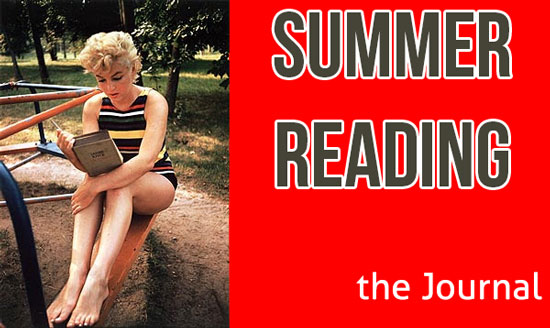
As I find myself back in a life of a student, the first day of school feels more and more like New Year’s Day to me than January 1st or Lunar New Year ever did, so summer naturally becomes the opportune time to rush the reading resolutions made the year before, a task equally weighted by the fear that my twenties will be a montage of me carrying a stack of unread books on top of my laptop, tellingly warm and buzzing, from place to place, and weighted by the desire to start another school year shiny and bright. Here are my fire sale books, the books I failed to read last year and need to read before the “new year”:
The Answer to the Riddle is Me by David MacLean
Just by the crude stats, I should really hate this book: This is a memoir about a white man who loses himself in India, and about the steps he has to take in order to find himself, which he finds ponderous. There is a foreign locale. There is pensive cigarette smoking. There is scotch drinking. But the above description is a disservice to David MacLean’s writing and to the terrifying yet extraordinary medical circumstance of how he completely lost his memory while at a train station in Hyderabad, India. While I envy how intuitive the organization of the book is [shakes fist at the appropriate and keen sense of white space], what struck me most in this memoir is how it walks very near the territory of memoir strategies that are most visible and often derided: the navel gazing, the obsession of minutiae and its use as a bedrock to expand into links to the general and universal world, the easy hatred of self to secure sympathy from readers, and the caricatures of real people we abuse to run parallel and counter to ourselves. The Answer to the Riddle is Me reminds me it’s not these patterns that are bad—that sentimentality is not always a trap but sometimes an honest impulse—just that these are usually so badly and uncritically written. These questions of self and identity and how we process them are central to the work of memoir and should not be easily elided or a default. It’s hard work, but MacLean makes it funny and thrilling.
Our Andromeda by Brenda Shaughnessy
I feel like I should know better than to be nervous while reading poetry, but … well, line breaks! Meter! Rhyme? In the very few poetry workshops I’ve taken, I flail superficial comments like “Oh the language is beautiful” and “Wow, the imagery” until I sit, sputtered out and ashamed. Brenda Shaughnessy’s Our Andromeda has a speaker who makes it a point to make me feel a little nervous and ashamed. She’s dynamite with two lit wicks, and she wants me to watch. She scrutinizes herself as an artist and as a mother while wish-building an alternate, better world for herself and her son while cutting her fantasy with the ever-present awareness that she knows she is wishing. She’s above any comfort I can give her, and not just because she’s smarter and more sly, but because she seems so right about everything. It’s been a while since I’ve read something that implicates me as a reader, as audience, but there’s nothing cold about Shaughnessy—as bald and uncomfortable as they can be, there’s something so warm in the admittances she gives. For me, this is a collection of poems to buy and to keep close.
